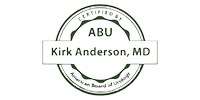WordPress Performance & Security
Starting in 2003 with a single bit of code to then becoming the largest self-hosting blogging tool in the world, WordPress has ten million visitors every day. It has a market share of the Top 1 million websites. The open-source Web-Application, Superb plugins, faster creation and easy to use, security, Multi-author feature, and SEO-friendly make it the best blogging platform for creating a responsive website.
But displaying content to the audience is not enough. Its performance plays a critical role, in whether people will like it or not. Everyone hates speed. So, if your website took time for loading pages, then it may frustrate the visitor and he/she may leave your page. To avoid this situation, you should do all the necessary steps to optimise your website’s performance.
How to enhance the performance of the website?
- Have a speed and load test for your site. If any issues arise then recommendable changes can be done to reduce the amount of data loaded by each page
- Then analyse the content delivery network. It allows you to rapidly serve static content hence will reduce the load time.
- Research your Plugins. If the identified problem, then upgrade it, replace it, or rebuild it.
Why is WordPress security important?
Google blacklists 10,000+ websites every day for malware and 50,000+ for phishing every week. If hacked then it can damage the business revenue as well as its reputation. It can be done by stealing users’ information, and passwords, and by various links.
A very common hacking attempt is stealing passwords. To avoid this, you should have a strong password that will protect you from hackers. Strong passwords are hard to remember. But the great thing is that you need not remember your password. The password manager will do this task for you.
Another way of enhancing the security of your website is to prevent people from getting access to WordPress Admin Account. If you are having a large team, then divide and share the task as per their role.
Certain WordPress hosting will provide you the extra measures to protect your servers against the threat. Some common examples of such WordPress hosting are Bluehost or Site Ground.
How does this work?
- This WordPress Hosting will continuously track the network as well as identify suspicious activity is detected
- They have enough tools to prevent large-scale DDOS attacks.
- Their server software is in the .php version that prevents the hacker from exploiting the network.
- They have disaster recovery and incident plans, which can be used further in case of major accidents.
If you are using shared hosting then, your file has been shared with multiple persons. In such a case, there is more of a chance to get hacked.
Nothing is ideal in this world. In the same way, there is nothing that can protect your website from attack. It’s only you who should decide whether you want the loss margin to be high or low. Of course, you are at a low loss margin. As they say, “precaution is better than cure”. You should have a backup for your website so that in case of an emergency, you can restore your site in no time. If you can store this content in cloud services like Amazon, Dropbox, etc then, it can be a blessing for you.
After backing up the site, you must need some tools to monitor and track the activities on your website. For these, there are many free and paid WordPress Security Plugins. Secure Scanner is a free WordPress plugin used for this process.
The easiest way to protect is to use a Web-application firewall. It will block all malicious traffic before it even reaches your website. Firewalls can be classified into two types –
- DNS level-This kind of firewall only allows genuine traffic to your website.
- Application Level -This kind of firewall examines the traffic once it reaches your server before loading the WordPress script.
Some other measures
- Disable the file edit option
- Limit login attempts
- Add two-factor authentication
- Use password protect WordPress Admin and Login Page
- Automatically log out idle users in WordPress
- Add security questions on the login page
For other WordPress-related content and service, reach out to us here.












